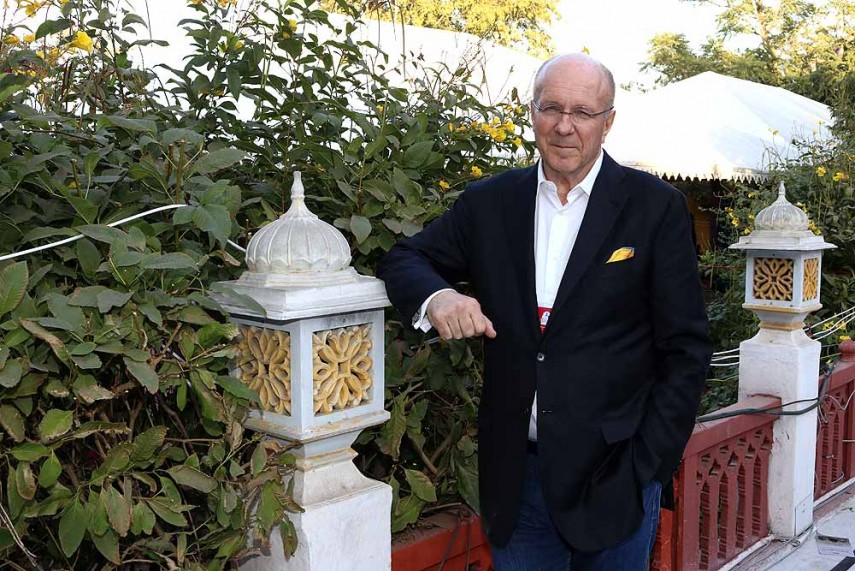JUDY WOODRUFF: Apple, the world's most valuable company, reports its earnings tomorrow from the last fiscal quarter. The computer maker's cutting-edge designs have defined a generation, but its fortunes ultimately come down to the idea and the application of precision. Tonight, author Simon Winchester shares his Humble Opinion on the importance of looking at the small picture.
SIMON WINCHESTER, Author, "The Perfectionists": Every week, two or three times, kind people, strangers from all over the world, send me ideas for books they think I should write. And each time, I have had to write and say sorry. But, five years back, a man named Colin Povey, a glassblower who lives in Florida, wondered if I might be interested in writing about something hidden in plain sight in modern society, and that was precision. Precision is everywhere, he said. The modern world couldn't function without it, and yet no one really knows what it is, where it began, where it might lead us. I was instantly captivated.

My father had been a precision engineer. He made tiny electric motors for the Royal Navy. And I loved it when used to take me round his factory to see the most minute components being made. Making these tiny things, all just the same, all made to the same degree of exactness, that was what precision was, mechanical perfection time after time. And precision did indeed seem to be everywhere. It is a vital part of mass production of cars, for instance. It's in the innards of jet engines, in microsurgery, in the exploration of the stars. However, I came across a troubling contradiction. Like anyone, I was awestruck by some of today's ultra-precise creations. There are four billion, with a B, transistors in an iPhone, for instance. And speaking of transistors, there are more of them in the world now than all the leaves in all the world's trees.
Yet, at the same time, I started to wonder how truly beneficial precision really is. Hasn't it perhaps made us lose sight of the beauty of nature, of the imperfect, of the imprecise? And with robotics and artificial intelligence coming down the road, all based on super-precision, isn't there a danger that we are fetishizing it, let it dominate us, come to worship titanium more than, let's say, wood or bamboo or glass? Well, and not entirely by chance, I like to think, Mr. Povey came to the rescue. He sent me what he called a trinket. And here it is: a Klein bottle, a three-dimensional version of a Mobius strip, in that it has only one continuous surface. It is a fantastically difficult thing for even the most skilled of glassblowers to make. And here's the important thing. It is not precise at all.
It is the work of a man who may be fascinated by the idea of precision, but who remains, at heart, a craftsman. And so I will keep and treasure this for all the rest of my days. Long after precise iPhone has become obsolete, this will be here, a triumph of the human spirit, and quite lovely to behold.












